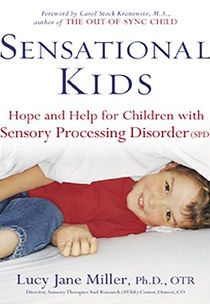

Autism Resources
Welcome to our resource page for autism that includes links to books available for purchase or download, as well as relevant resources for individuals and families affected by autism. These are some of the highlights of what we find and use regularly in our Music Therapy practice with autistic individuals.
the challenging child
by Stanley I. Greenspan
The Challenging Child reassures parents that they do not simply have to "live with" their child's temperament but can fit their parenting style to their child's unique personality and help each child build on strengths, master weaknesses, and embrace life with confidence and skills.
Studies Stories & More
Studies, stories, and videos that we've enjoyed (and hope you will too!)
RESEARCH:
The study found that singing can reduce disruptive vocal habits in children with Autism Spectrum Disorder (ASD) by replacing them with socially appropriate vocalizations, leading to increased opportunities for social interaction through music.
VIDEO:
This informative video discusses how to know if your child is a Gestalt language learner, and how to support them if they are.
RESEARCH:
The study found that acceptance of autism—especially self-acceptance—significantly impacts mental health in adults with Autism Spectrum Disorder (ASD), while low societal acceptance is linked to higher levels of depression and stress.



